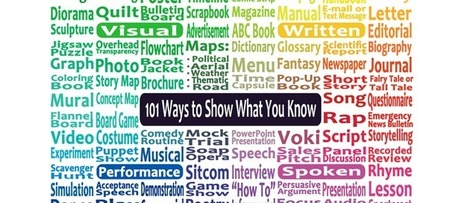The Covid-19 pandemic has dramatically upended traditional schooling and made remote learning the “new normal.” Teachers are scrambling to offer some form of continuing education using virtual technologies, with the recognition that traditional approaches to curriculum, instruction, assessment, and grading must be altered. While it might be more expedient to present online lessons, electronic worksheets, and resource packets, we propose that the learn-at-home circumstance offers an opportunity to present students with more engaging and meaningful learning experiences. More specifically, we recommend providing students with assignments and tasks that challenge them to find information from various sources, critically appraise what they find, and use what they learn to address interesting issues and genuine problems.
Via Elizabeth E Charles



 Your new post is loading...
Your new post is loading...













